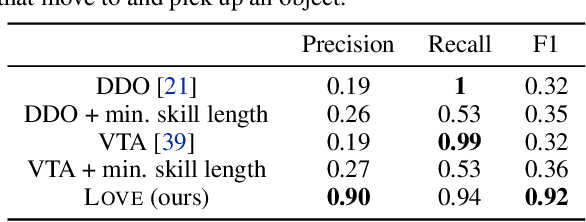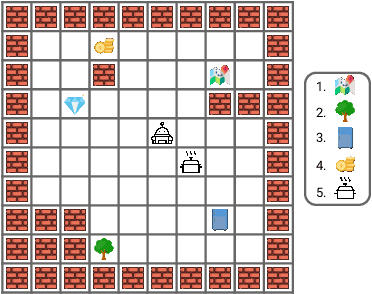Learning Options via Compression
Paper and Code
Dec 08, 2022



Identifying statistical regularities in solutions to some tasks in multi-task reinforcement learning can accelerate the learning of new tasks. Skill learning offers one way of identifying these regularities by decomposing pre-collected experiences into a sequence of skills. A popular approach to skill learning is maximizing the likelihood of the pre-collected experience with latent variable models, where the latent variables represent the skills. However, there are often many solutions that maximize the likelihood equally well, including degenerate solutions. To address this underspecification, we propose a new objective that combines the maximum likelihood objective with a penalty on the description length of the skills. This penalty incentivizes the skills to maximally extract common structures from the experiences. Empirically, our objective learns skills that solve downstream tasks in fewer samples compared to skills learned from only maximizing likelihood. Further, while most prior works in the offline multi-task setting focus on tasks with low-dimensional observations, our objective can scale to challenging tasks with high-dimensional image observations.
 Add to Chrome
Add to Chrome Add to Firefox
Add to Firefox Add to Edge
Add to Edge